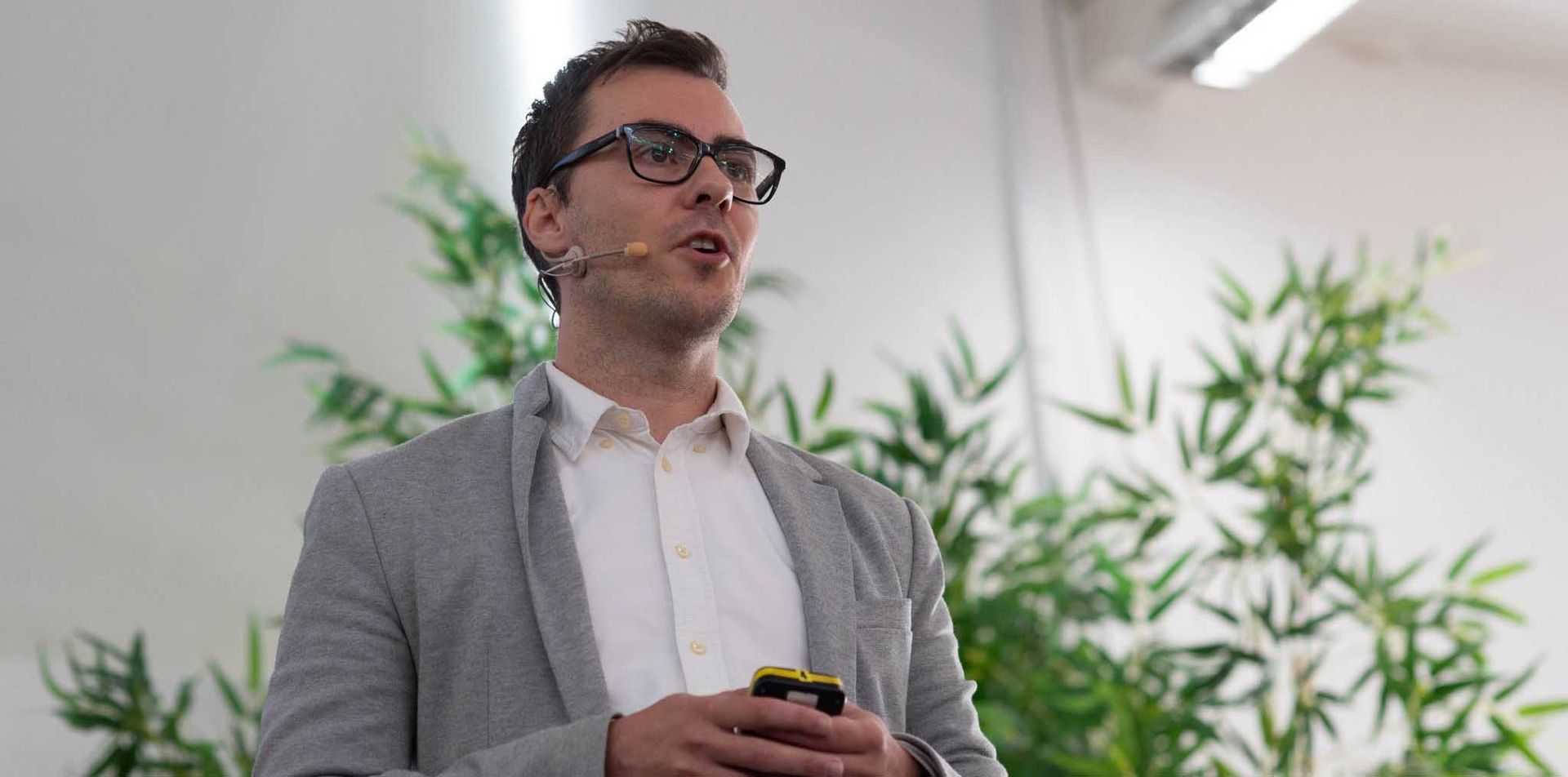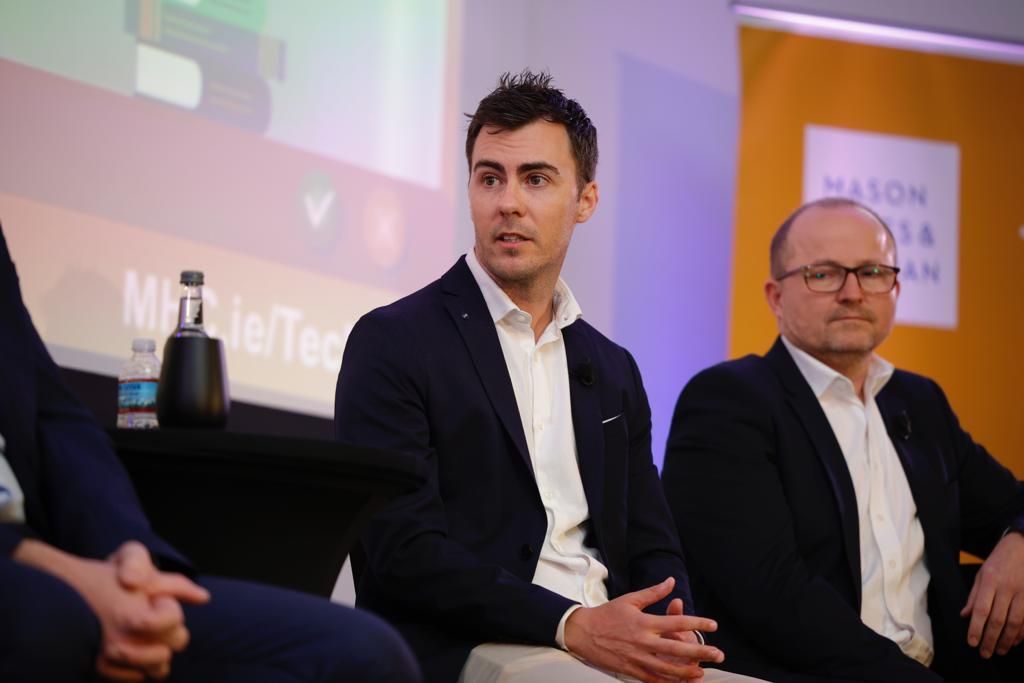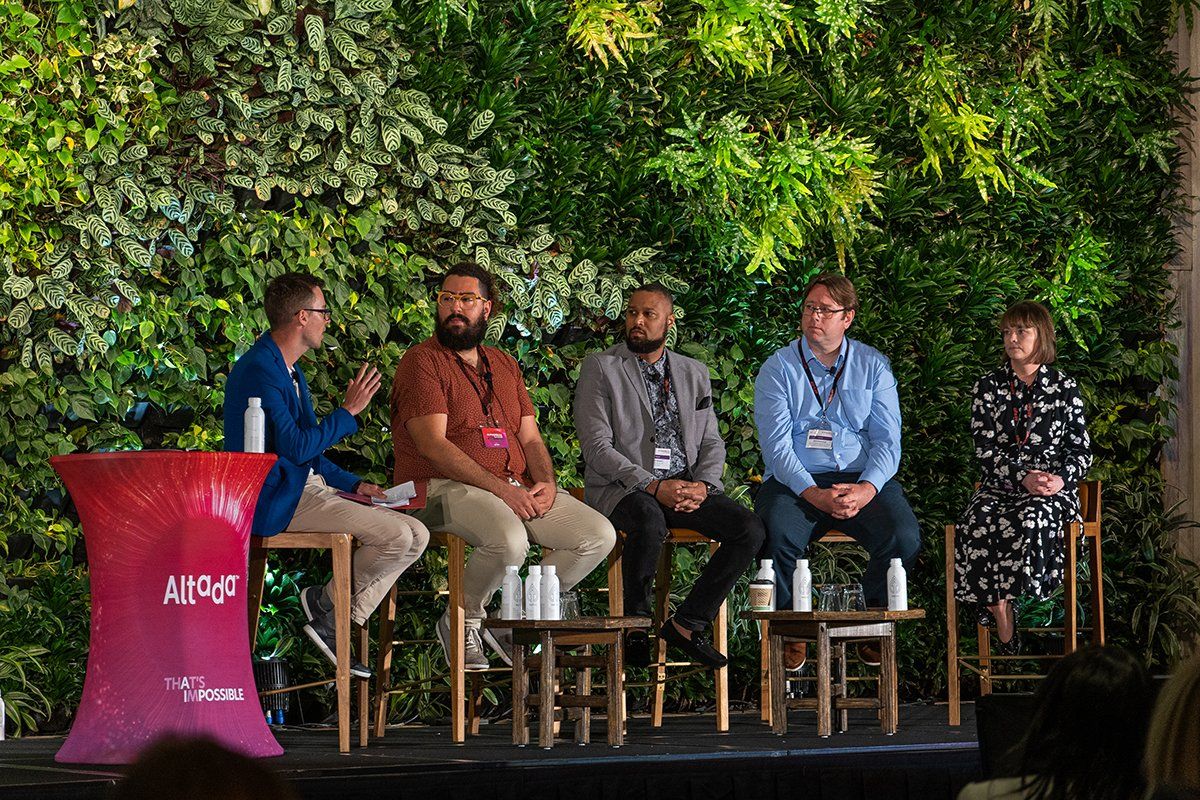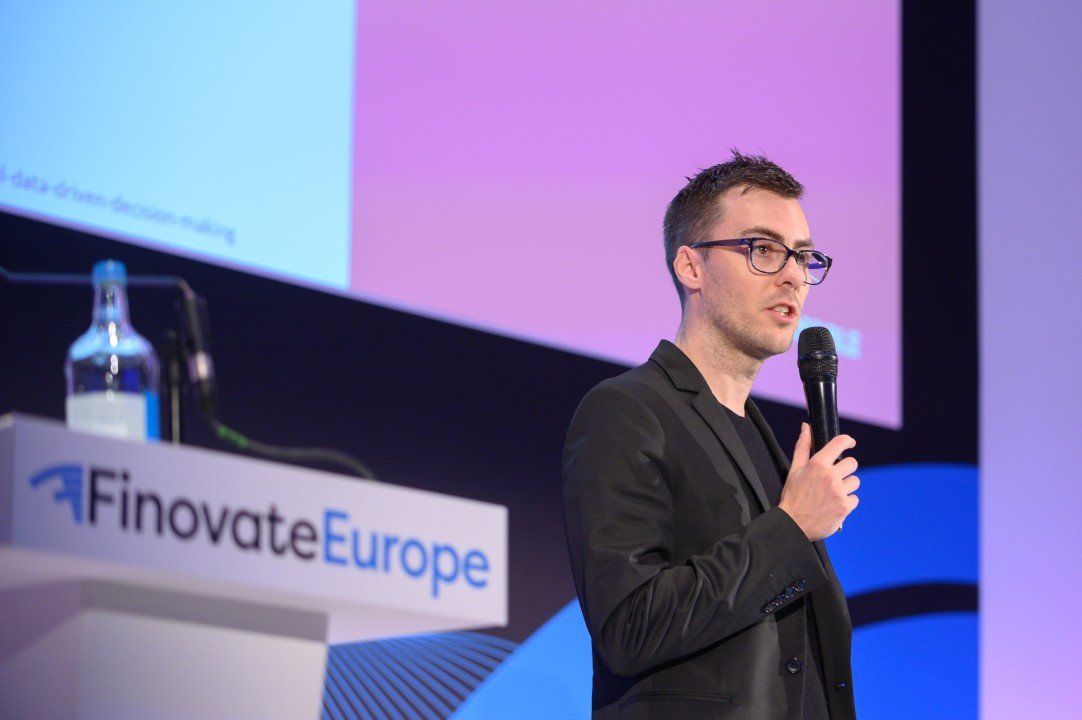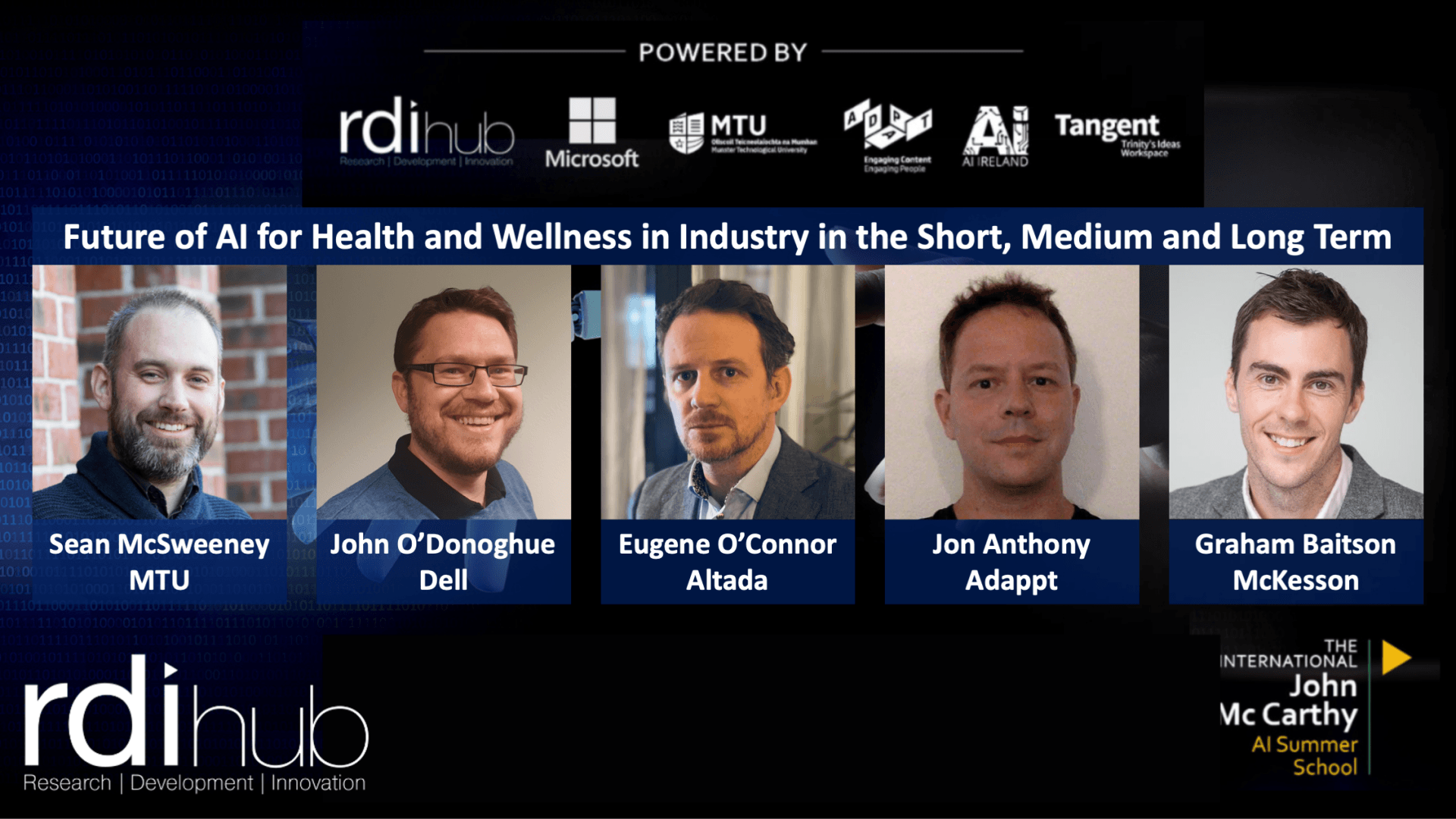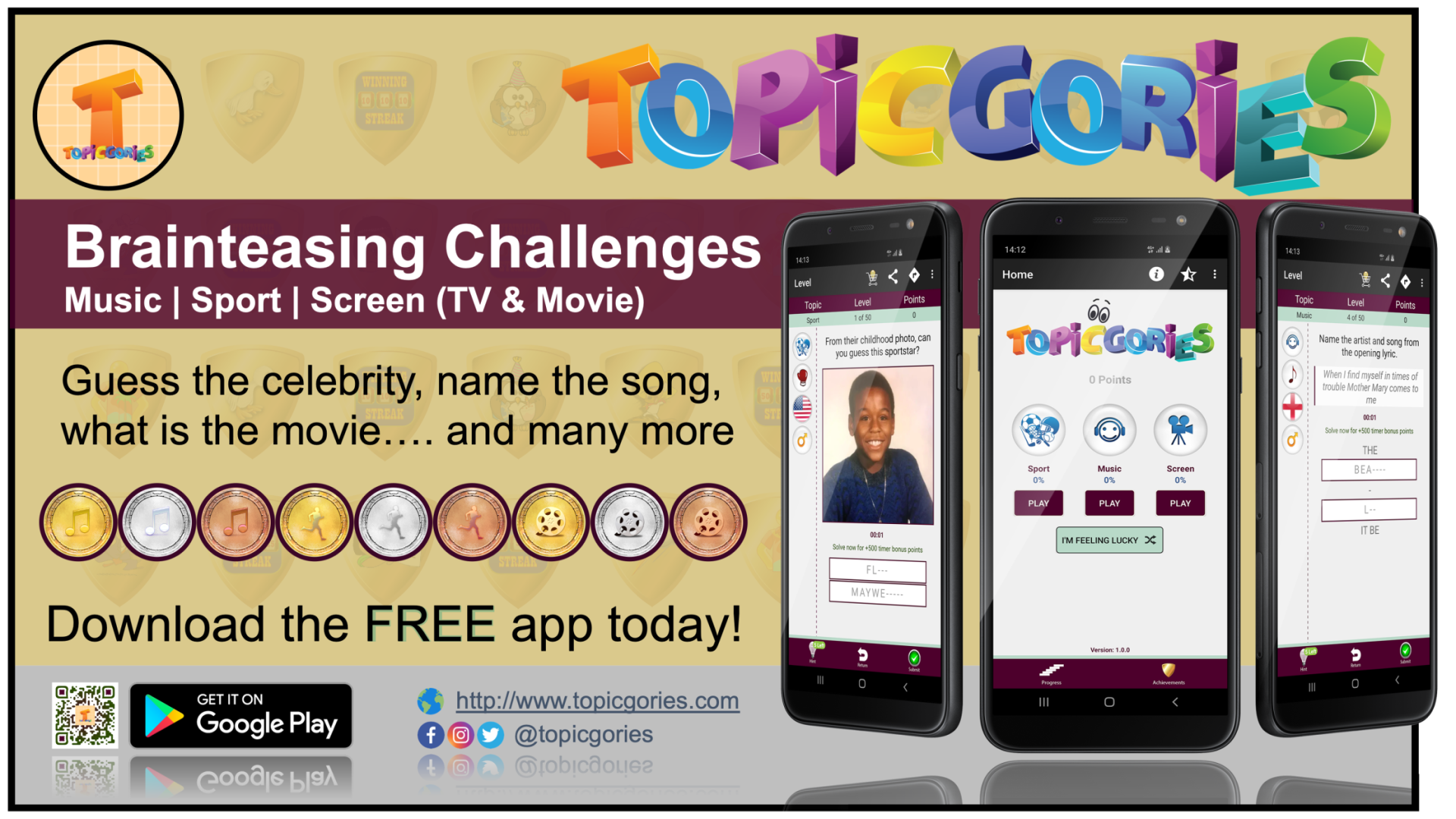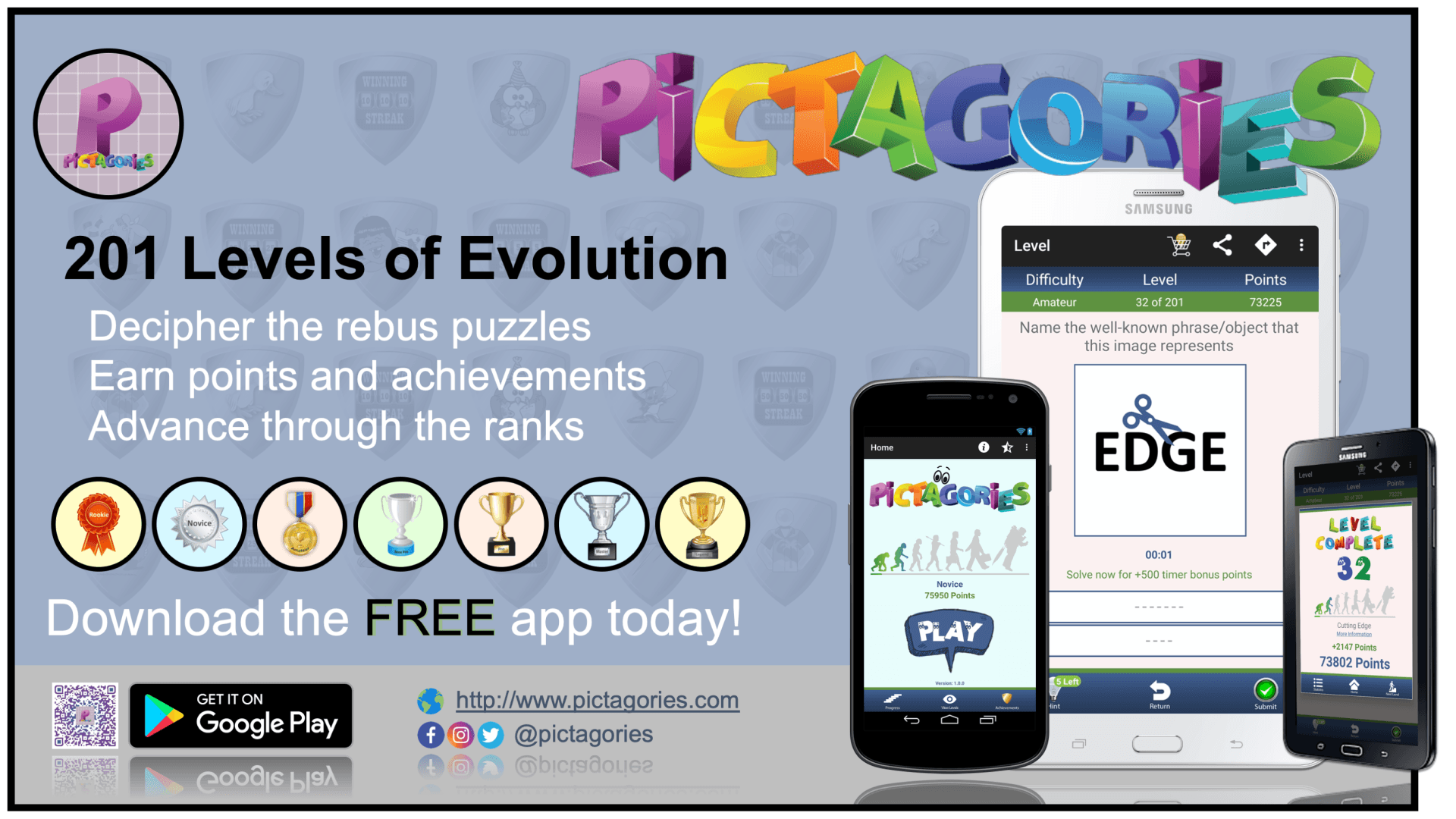Rethinking Talent to Thrive In An Agile AI World
9 Minute Read - A few weeks ago, I had the pleasure of speaking at the AI Summit 2021. During a panel discussion on “Rethinking Talent to Thrive in an Agile AI World” I got the opportunity to discuss the impact of AI on the job market, how we can make Ireland a recruitment magnet for overseas AI-skilled executives, how we can attract more women into AI-related roles, and how we can use AI to attract and retain more talent. For those of you who couldn’t join, I put together a quick overview of some of the areas above that were covered.
AI Impact on the Job Market
Impact
In one of my previous articles “Are Humans the Next Horse? The Rise of the Robots”, I took a look at the impact of the previous industrial revolutions. During these revolutions, people were worried about losing jobs and fearful about loss of freedom and autonomy to boredom and repetition. Although jobs were lost, for the majority, each advancement brought a better quality of life and also resulted in a broader range of jobs. But this time around it’s slightly different, and depending on what report you read or what expert you listen to, we could be on the cusp of our own extinction.
Ethics
One approach aimed at combatting these fears of self-destruction is to ensure that ethics is introduced at the forefront. I discussed this is more detail during my previous article “The Rise of Ethics in Artificial Intelligence (Part 3: Trustworthy AI)”, explaining how AI is becoming more of a humanities problem than an technology problem as we aim to ensure that the technical solutions created using AI will have a positive effect on the health, well-being, and future of human kind. The trust of these solutions is still a major concern, especially within the healthcare industry. One concept that aims to help create transparency is Explainable AI, which aims to unravel the black block of decision making to allow the user to understand the process, the models that were used to train the algorithms, and also validate the result. There are great advancements being made from MTU (Munster Technological University) around understanding the hierarchical nature of medical workflows (Pawar, U., et al, 2021).
Soft-Skills
In relation to the job market, we are going to see a big emphasis on soft-skills with people being encouraged to adapt and develop soft skills such as empathy, creativity, curiosity, and emotion, to complement their technical skills. People will need to start considering what skills and capabilities they should develop to ensure they are employable for future jobs. Jobs that solely rely on low-level repetitive and tedious tasks will most likely be displaced due to the advancements in technologies, but it will also alleviate humans to focus on more higher-level functions and meaningful tasks - the soft skills of today will be the hard skills of tomorrow. This will obviously create a demand for new and different types of jobs such as ethical officers to ensure that AI is introduced correctly in adherence to company goals and values, walker/talkers to enable us to become more human again as more and more jobs become automated, mental health officers to deal with the unknown impact of human and machine interaction on a daily basis, and financial coaches when cash is obsolete as digital currency and automated loans and payments become more and more common.
Rethinking Education
Due to the need for this soft-skills shift in addition to the ever increasing importance and value of AI, we have started to see universities creating new AI curriculums, with CIT / MTU creating Ireland’s first MSc in Artificial Intelligence back in 2018 (Silicon Republic, 2018). These curriculums are then complimented by Skillnet who provide access to funded courses and also work with industry to identify future required business skills ensuring that courses are addressing these requirements. As the importance of these soft-skills that will augment the boundaries of technology and human interaction continue to increase, we also need to see the early learning education system evolve from a predominantly focused left-brain (analytical, methodical) curriculum to right-brain curriculum (creativity), enabling and allowing kids to flourish in their creative elements and equipping them with the future required skills for employment.
Making Ireland a Recruitment Magnet for Overseas AI Executives
High Profile Experts
For Ireland to continue to be a leading tech hub for start-ups and innovators (Talent Garden, 2020) and keep the highest ratio of AI talent in the European Union (The Irish Times, 2019a), we need to consistently attract expert talent. Smart people want to work with smart people, so having experts well renowned in their fields will help attract more talent. It’s important to constantly get people like Professor Aljosa Smolic, SFI Research Professor of Creative Technologies at Trinity College Dublin who has worked on numerous R&D projects and publications (Smolic, Prof. Aljosa., 2021), involved with industry and start-ups to share their experiences, knowledge, and lessons learned.
Headhunting
But we shouldn’t wait for these experts to find opportunities, we should also proactively target talent with opportunities. Companies such as Alldus (Alldus, 2021), who are AI, data, and technology recruitment specialists, are taking a holistic approach to doing this by working with clients to build communities of experts, understand their requirements, and then connect them to the best people in AI.
Promote Ireland
This task is helped by the fact that Ireland is a key location when it comes to attracting top talent. Ireland is ranked 12th in the world on the Global Peace Index of the top safest countries to live (Statistics Times, 2020) and ranked 2nd in the world on the United Nations study for the quality of the life (The Irish Post, 2020). The education system in Ireland is world renowned for young people having the highest levels of education in Europe and 4th highest in the world (The Irish Times, 2019b). And if that wasn’t good enough, just to sweeten the deal, there are fantastic government incentives towards R&D which allow the possibility of obtaining up to 50% in tax credits for R&D initiatives (Enterprise Ireland, 2021).
Showcasing Projects
To finish it off, it’s also important to have AI conferences and awards such as the AI Summit (AI Summit, 2021) and AI Awards (AI Awards, 2021) to showcase the amazing work that is being done in Ireland.
Attracting More Women into AI-Related Roles
It’s very clear to see that there’s a gender gap when it comes to AI, with recent reports (World Economic Forum, 2019) showing less that 30% of professionals in data and AI are women, and will remain with a gap for the next 100 years.
Role Models
One way we can aim to continuously reduce this gap is to have more female role models. One of the major challenges is that some people still view and have the perception that technology and AI is a ‘male-only’ career path, so we need more role models like Dr. Begüm Genç, Postdoctoral Researcher at Confirm Centre (Genç, Dr. Begüm, 2021) and Alessandra Sala, Director of Artificial Intelligence and Data Science at Shutterstock (Sala, Alessandra, 2021) to pave the way and share their experiences in the AI industry by highlighting the benefits and opportunities of working within technology.
We are constantly seeing progress in this area. A good example of this is back in April of this year, Professor Linda Doyle, who is an advocate for the arts and women in STEM, was announced as the first woman to be elected as provost in Trinity College’s 429-year history (Silicon Republic, 2021). TD Simon Harris reacted to this saying that this means “another glass ceiling has been shattered”. We all need to keep shattering those glass ceilings.
Environment that Welcomes Diversity
Another thing we can do is to consistently create environments that welcome and celebrate diversity. There’s been a big increase in companies focusing and creating metrics around diversity and inclusion, and with the recent changes in the workplace, the introduction of more flexibility within people’s roles will also help. We’re also seeing companies like McKesson partnering with universities (i.e. MTU) and research centres (i.e. SFI ADVANCE) to create PhD scholarship programmes. During this process, we saw a 700% increase in the number of female PhD applicants based on the neutral branding and marketing of the position, due to the fact that women generally don’t apply for roles unless they meet a larger percentage of the criteria of the requirements, and generally underrepresent themselves in a factor of 3 to 1 when applying for roles and positions (Harvard Business Review, 2014).
Using AI to Attract Talent
Talent Management Core Challenges
One of the biggest challenges in talent management is helping employees develop and progress within the organisation. 78% of employees feel that it’s up to the employer to provide the environment for them to up-skill and grow within their career (Forbes, 2020). The following are some of the core challenges of talent management (Work Trends, 2020):
- Personalisation: We are all too accustomed to having information on-demand, so if we don’t see what we want, whether it be a job opportunity or development plan, we give up and move on.
- Candidates Time: A lot of time is spent sifting through potential candidates, and only a very small portion of them are ever successful. Furthermore, once the candidates have gone through the process, whether successful or unsuccessful, more often than not they are removed from the internal databases or systems.
- Lack of Skills Visibility: Most companies don’t have any idea or overview of the skills and capabilities that exist within their organisation. For the most part, if an inventory is taken, it is only a snapshot in time and doesn’t take account of previous employees or have a consistent way to retrieve this information on a regular basis.
- Future of Work: If companies don’t have this up to date inventory, then it’s not possible to know the potential of what can be achieved. In addition, sometimes companies themselves don’t have a good handle on what skills are required to do each of their jobs.
- Diversity: It’s proven that a diverse workforce outperforms a non-diverse workforce by allowing for greater creativity, greater ideas, and greater innovation. One company that is actively working on increasing the diversity that joins your company is The Context Factory who are deploying their ethical machine learning technology during the hiring process (The Context Factory, 2021).
AI Towards Talent Intelligence
By introducing AI into your talent management system, some of the core challenges outlined above can be addressed. If companies have a good grasp and understanding of their employees and what their capabilities are, they can start to see patterns on what type of people in relation to their background and skills perform well for specific roles and tasks. This then creates an opportunity to infer missing potential information from a candidates profile to bring people into the company that may be from unconventional and diverse backgrounds, enabling a level playing field (i.e. people are not considered based on key words from their resume, but based on what the AI knows should exist based on the data).
Retaining Talent
In addition to personalising job recommendations to both external and internal candidates, once candidates are successful in securing a position, AI can be used to introduce personalised training and development plans, suggest projects to get involved with to build up certain skills or utilise and make the best use of the candidates, and also highlight the impact of different perspectives across the organisation.
Final Thoughts
As AI is introduced more and more to replace manual tasks, people will need to understand how they can complement this technology and become valuable assets in the cohesion between technology and human interactions. More emphasis should be put on the cost and impact of education towards our future workforce and the required skills that will keep humans on the cusp of innovation. We’ve seen the economy go through turmoil during the last year, and it’s only when companies have a really good overview of their capabilities within their organisation, a breakdown of their projects and requirements, and the skills that are required to continue to perform and be profitable, that they’ll be able to transform rapidly during these uncertain times. As we continue to progress towards a technological future with AI replacing more and more tasks, we need to continue to grasp onto what truly makes us human, and provide people with opportunities to utilize their talent and harmonize with technology resulting in the ultimate combination.
Hashtags
#ai #artificialintelligence #innovation #machinelearning #recruitment #agile #talent #futureofwork #talentacquisiton #hr
References
- AI Awards. (2021). AI Awards – Connecting Ireland’s AI ecosystem for a higher purpose. Available at: https://aiawards.ie/. [Accessed 27 May 2021].
- AI Summit. (2021). Embrace the AI opportunity today with a best practice implementation strategy. Available at: https://aisummit.ie/. [Accessed 27 May 2021].
- Alldus. (2021). Alldus – Leaders in AI Staffing. Available at: https://alldus.com/ie/. [Accessed 27 May 2021].
- The Context Factory. (2021). Whole Village Hiring. Available at: https://thecontextfactory.com/. [Accessed 1 Jun 2021]
- Enterprise Ireland. (2021). Research, Development & Innovation (RD&I) Fund. Available at: https://www.enterprise-ireland.com/en/funding-supports/Company/Esetablish-SME-Funding/R-D-Fund-Large-Projects-.html. [Accessed 27 May 2021].
- Forbes. (2020). Accenture Research Shows Employees Care About Much More Than Money – Here’s What They Need To Build Your Business. Available at: https://www.forbes.com/sites/nelldebevoise/2020/10/08/your-employees-dont-care-about-money--heres-what-they-need-to-build-your-business/?sh=7d00b81e1645. [Accessed 1 Jun 2021]
- Genç, Dr. Begüm. (2021). Dr. Begüm Genç. Available at: http://www.cs.ucc.ie/~bg6/. [Accessed 27 May 2021].
- Harvard Business Review. (2014). Why Women Don’t Apply for Jobs Unless They’re 100% Qualified. Available at: https://hbr.org/2014/08/why-women-dont-apply-for-jobs-unless-theyre-100-qualified. [Accessed 27 May 2021].
- The Irish Post. (2020). Ireland has second-highest quality of life in the world, according to UN report. Available at: https://www.irishpost.com/news/ireland-has-second-highest-quality-of-life-in-the-world-according-to-un-report-200228. [Accessed 27 May 2021].
- The Irish Times. (2019a). Ireland is top AI talent hub in the EU. Available at: https://www.irishtimes.com/business/technology/ireland-is-top-ai-talent-hub-in-the-eu-1.4096841. [Accessed 27 May 2021].
- The Irish Times. (2019b). Young people in Ireland among world’s most educated. Available at: https://www.irishtimes.com/news/social-affairs/young-people-in-ireland-among-world-s-most-educated-1.4013671. [Accessed 27 May 2021].
- Pawar, U., et al. (2021). Evaluating Hierarchical Medical Workflows using Feature Importance. Available at: https://www.researchgate.net/publication/350856053_Evaluating_Hierarchical_Medical_Workflows_using_Feature_Importance. [Accessed 27 May 2021].
- Sala, Alessandra. (2021). Alessandra Sala. Available at: https://www.linkedin.com/in/salaalessandra. [Accessed 27 May 2021].
- Silicon Republic. (2018). Ireland’s first master’s degree in AI driven by spectre of a skills shortage. Available at: https://www.siliconrepublic.com/careers/ai-masters-degree-ireland. [Accessed 27 May 2021].
- Silicon Republic. (2021). Who is Linda Doyle, the newly elected provost of Trinity College Dublin? Available at: https://www.siliconrepublic.com/innovation/linda-doyle-provost-trinity-college-dublin. [Accessed 27 May 2021].
- Smolic, Prof. Aljosa., (2021). Professor Aljosa Smolic. Available at: https://www.tcd.ie/creative-arts/staff/SMOLICA. [Accessed 27 May 2021].
- Statistics Times. (2020). Global Peace Index. Available at: http://statisticstimes.com/ranking/global-peace-index.php. [Accessed 27 May 2021].
- Talent Garden. (2020). Why Dublin is a Leading Tech Hub for Startups and innovators. Available at: https://talentgarden.org/en/digital-transformation/why-tech-startups-should-choose-dublin. [Accessed 27 May 2021].
- Work Trends. (2020). Brad Sutton – How AI is Reinventing Talent Management. Available at: https://open.spotify.com/episode/4n3TxoVolMpmsuOdLwG7lB?si=JD5csAoBQqiEts0U5otFNQ. [Accessed 1 Jun 2021]
- World Economic Forum. (2019). Global Gender Gap Report 2020. Available at: https://www.weforum.org/reports/gender-gap-2020-report-100-years-pay-equality. [Accessed 27 May 2021].
